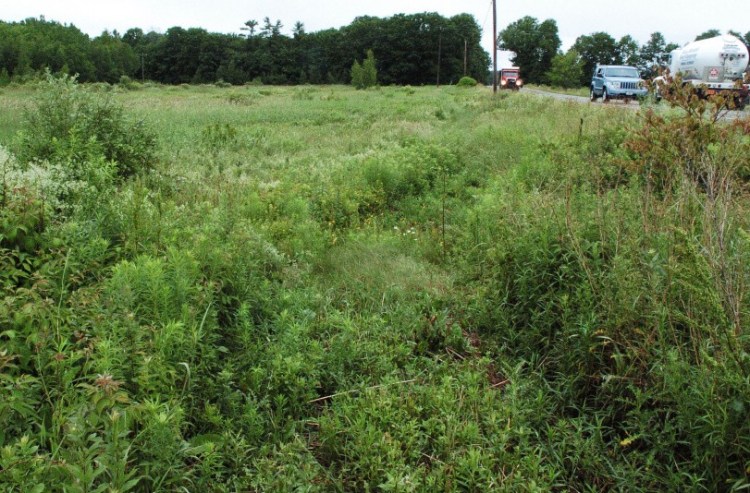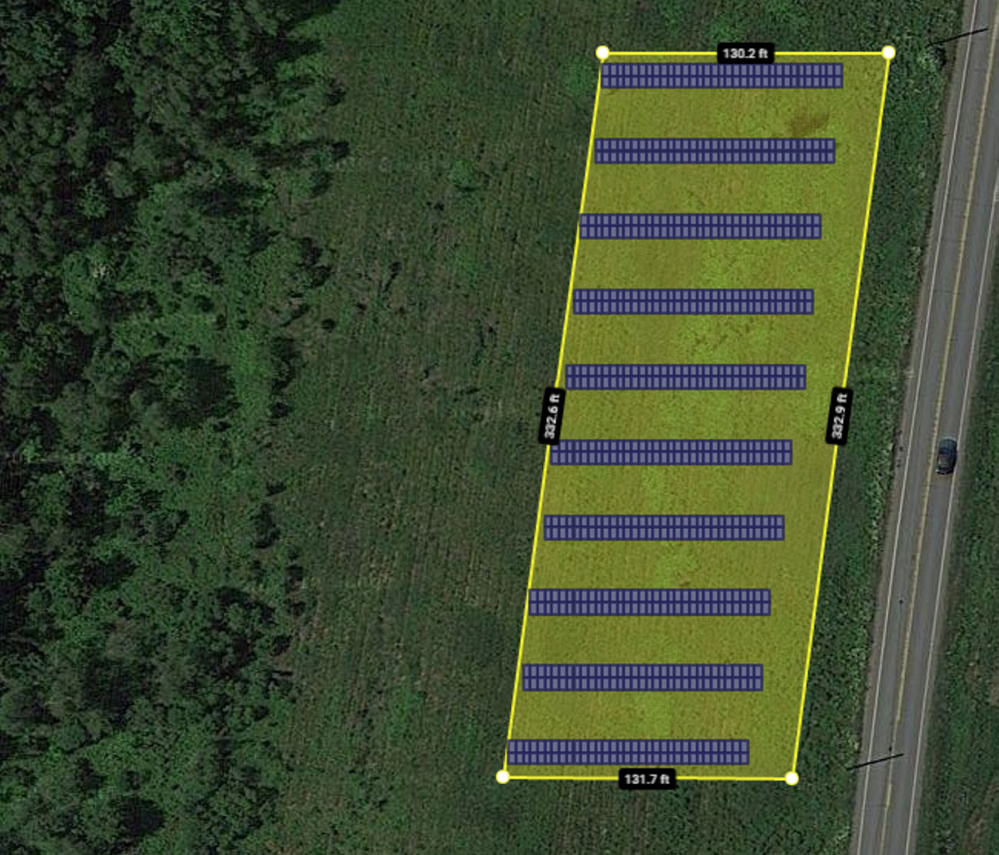CHINA — A solar farm on land next to Route 32 will be four times bigger than originally planned — up to 650 panels that would generate up to 200 kilowatts of energy for as many as nine owners.
ReVision Energy, a New England solar energy company, plans to build a community solar farm on a large uncultivated field owned by Christopher Hahn, who owns Three Level Farm.
The company originally had planned up to 150 panels that would generate 50 kilowatts of energy, but it asked the Planning Board on Tuesday to authorize expansion of the project.
At a Planning Board meeting Tuesday night, Hans Albee, company engineer for Liberty’s ReVision energy, asked to increase the scale of the project fourfold, meaning up to 650 panels that could generate 200 kilowatts of energy. The property is 330 feet by 130 feet and the modules will cover up to 12,000 square feet of the land. The community solar farm plans to take up to nine members, which can be anyone within Central Maine Power territory.
“That’s the biggest we feel we could conceivably build there,” Albee said Wednesday morning. The company is accepting applications for membership online.
The company anticipates completing the project by the fall, Albee said.
The project was first approved on Aug. 25, but the company couldn’t build during the colder months, so it started looking for members instead, Albee said. It found a few people who were interested, but they wanted larger shares.
The average household would use 5 to 6 kilowatts of solar energy, according to Albee. He couldn’t specify how much more those who wanted a larger share would use, because that is up to them; but he said that typically people want more energy if they use geothermal heat in their homes instead of oil or propane.
ReVision Energy, which has offices in Liberty and Portland, as well as two in New Hampshire, uses community solar farms to allow greater access to solar energy, Albee said Wednesday. Homeowners and business owners who don’t have a suitable location or roof for a solar panel to be installed on their building still can get the environmental and financial benefits of solar through the farms.
ReVision has two other such farms in the state, according to its website, including one that went online in Wayne in May and another in Edgecomb. The Wayne project, Sky Ranch, is 49.6 kilowatts and the one in Edgecomb is 46.4. Even the larger China plan is dwarfed by some of the state’s biggest solar projects — for instance, Colby College plans a 5,000-panel, 2.5 million kilowatt project.
Albee said the company decided to build a solar farm in China because Hahn expressed interest and the property is relatively close to ReVision Energy’s Liberty branch. Hahn was out of the country this week and not available for comment.
Community solar farms also allow renters to use solar energy, and they can take their share of that farm with them wherever they move within CMP territory, Albee said.
All members will get credits toward their net metering in proportion to the shares they own, Albee said. If someone owned 10 percent of the solar farm, then he or should would get 10 percent back in credits.
Net metering is a state rule by which utility companies, such as CMP, credit customers with solar power for energy they feed back into the grid, so they pay the net cost of their bills.
The Public Utilities Commission has issued a notice of inquiry on solar energy policies and could change its rules by next January.
Albee, however, said that ReVision Energy is optimistic that, in the long-term, solar energy will benefit all people in the state.
After the solar farm is built, the members who buy into it will own the site and will be responsible for mowing and clearing brush, Albee said in response to a question from District 2 Councilor Toni Wall. The group will work like a homeowner’s association and will also have a lease agreement with Hahn.
Albee did say that the panels will be visible from the road, although there will be a 30-foot buffer along the road and the property is slightly below road level.
Chairman Frank Soares was concerned about possible consequences from the weather. Albee said the panels are installed at 35 degrees to allow snow to slide off, although if there is heavy snowfall it might not slide off easily. To account for that, the company also builds in an estimate of how much energy will be lost to snow coverage for members, he said.
The modules also shouldn’t cause any runoff on the property, as the way they’re installed shouldn’t create “any real impermeable surface,” he said.
Wall also asked about whether the modules contained any fluids or hazardous material that would be released if they break, but Albee said that this type of panel — which transfers energy — is a silicon disc that acts as an electric carrier and does not contain fluid.
Madeline St. Amour – 861-9239
mstamour@centralmaine.com
Twitter: @madelinestamour
Send questions/comments to the editors.





Comments are no longer available on this story